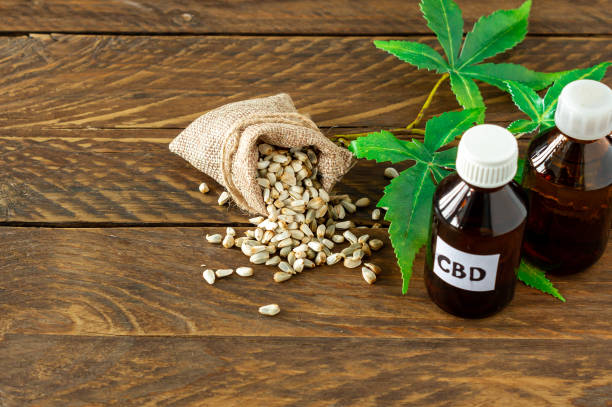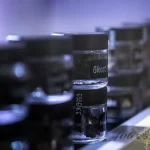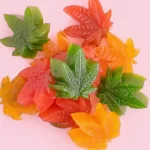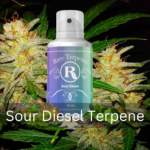The world of cannabis is rapidly evolving, and with that evolution comes a new wave of products designed to offer users a different experience. Among the most recent innovations are THCA edibles, which have garnered significant attention for their unique effects and potential benefits. Whether you’re a seasoned cannabis enthusiast or a curious beginner, understanding THCA edibles can open the door to a whole new realm of consumption.
What is THCA?
Before diving into the details of THCA edibles, it’s important to understand what THCA is and how it differs from its more well-known cousin, THC. Tetrahydrocannabinolic acid (THCA) is the precursor to THC, the compound responsible for the psychoactive effects associated with cannabis. While THC is what causes the “high” that people commonly associate with marijuana use, THCA itself does not produce these effects in its raw form.
THCA is found in fresh, unheated cannabis. It’s non-psychoactive until it undergoes a process called decarboxylation, which occurs when heat is applied, such as when smoking or vaping cannabis. During this process, THCA loses its acidic group and converts into THC, making it psychoactive. This is why consuming raw cannabis or products like THCA edibles, which don’t go through this heating process, can offer a different experience.
The Benefits of THCA
Even though THCA is non-psychoactive, it is still associated with a range of potential benefits. Research into THCA is still relatively limited, but some of the most commonly reported benefits include:
- Anti-inflammatory properties: THCA may help reduce inflammation, which can be beneficial for conditions like arthritis, chronic pain, and other inflammatory disorders.
- Neuroprotective effects: Some studies suggest that THCA has neuroprotective qualities, meaning it could potentially help protect brain cells and support cognitive function.
- Antioxidant effects: Like many other cannabinoids, THCA has antioxidant properties, which could help protect cells from oxidative stress and prevent cellular damage.
- Anti-nausea effects: THCA has been shown to reduce nausea and vomiting, making it a potential treatment option for those undergoing chemotherapy or suffering from other causes of nausea.
What Are THCA Edibles?
THCA edibles are food products infused with THCA, the acidic form of THC. These edibles typically come in the form of candies, gummies, chocolates, or beverages, allowing consumers to ingest THCA in a way that is convenient and discreet. Unlike traditional THC edibles, THCA edibles are often made using raw cannabis or cannabis extracts that have not been decarboxylated, meaning they do not produce the same psychoactive effects that THC-infused products do.
Because they do not contain significant amounts of THC, THCA edibles provide a very different experience. Instead of inducing a high, users may experience the therapeutic benefits associated with THCA, such as relief from inflammation, anxiety, or nausea.
How Do THCA Edibles Work?
THCA edibles work in much the same way as other cannabis-infused edibles, except for the lack of psychoactive effects. When you consume a THCA edible, your digestive system breaks down the compounds, allowing them to be absorbed into the bloodstream. However, unlike THC edibles, which are processed into THC by the liver, THCA edibles retain their raw form and provide the benefits of THCA without any alteration.
The effects of THCA edibles are generally more subtle than those of THC edibles. Many users report feeling relaxed, calm, or relieved from pain and inflammation without experiencing any high. However, it’s important to note that the effects can vary depending on the individual, the dosage, and the type of edible consumed.
The Benefits of THCA Edibles
While THCA edibles do not produce a high, they offer several potential benefits that can be appealing to a wide range of consumers. Some of these benefits include:
Non-psychoactive experience: For those who wish to avoid the intoxicating effects of THC, THCA edibles offer a way to experience the potential therapeutic benefits of cannabis without the “high.”
Chronic pain and inflammation relief: Because of THCA’s anti-inflammatory properties, these edibles may be useful for people dealing with chronic pain, muscle spasms, or conditions like arthritis.
Nausea and vomiting relief: THCA may also help alleviate nausea and vomiting, which could be especially beneficial for individuals undergoing chemotherapy or those with digestive issues.
Neuroprotective effects: The neuroprotective properties of THCA could support brain health and may have future implications in treating conditions like Alzheimer’s or Parkinson’s disease.
Improved mood and mental clarity: Some users report feeling a boost in mood and mental clarity after consuming THCA edibles, as the compound has potential anxiolytic (anti-anxiety) properties.
How to Consume THCA Edibles
Consuming THCA edibles is much like consuming any other edible product. It’s essential to start with a low dose, especially if you are new to cannabis or unsure about your tolerance. Most edibles come with a recommended dosage on the packaging, but it’s a good idea to start with a small amount and see how your body reacts. Typically, the effects of THCA edibles can take anywhere from 30 minutes to two hours to fully kick in, depending on your metabolism and the type of edible you’ve consumed.
As with any cannabis product, it’s important to be mindful of the dosage to avoid any unpleasant effects, even though THCA itself is not psychoactive. Taking too much could lead to digestive discomfort or other minor issues, so it’s best to pace yourself.
Are THCA Edibles Legal?
The legality of THCA edibles depends on where you live. In regions where cannabis is legalized for medicinal or recreational use, THCA edibles are generally legal. However, if cannabis is not legal in your area, THCA edibles may also be restricted.
It’s important to check your local regulations before purchasing or consuming THCA edibles. Some places have strict rules surrounding cannabis consumption, while others may be more lenient with cannabis-related products.
Conclusion
THCA edibles are an exciting and innovative way to experience the therapeutic benefits of cannabis without the psychoactive effects associated with THC. Whether you’re seeking relief from inflammation, pain, or nausea, or simply want to explore the world of non-psychoactive cannabinoids, THCA edibles offer a unique and effective option. As always, it’s important to be cautious with dosing and mindful of your individual tolerance to ensure a positive experience.
As more research is conducted on THCA and its potential benefits, it’s likely that these edibles will become an even more popular choice among consumers seeking relief without the high.
Medical Disclaimer:
The information provided in these blog posts is intended for general informational and educational purposes only. It is not a substitute for professional medical advice, diagnosis, or treatment. Always seek the advice of your physician or other qualified healthcare provider with any questions you may have regarding a medical condition. The use of any information provided in these blog posts is solely at your own risk. The authors and the website do not recommend or endorse any specific products, treatments, or procedures mentioned. Reliance on any information in these blog posts is solely at your own discretion.
















